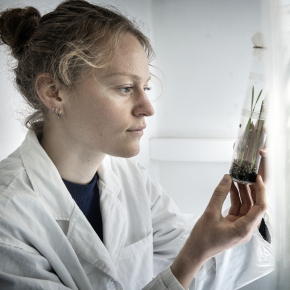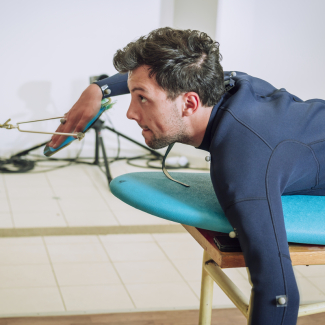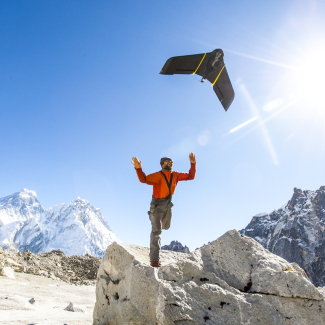
How the CNRS assesses its impact on biodiversity
The sixth mass extinction seems to rally and involve people much less than the combat against global warming. As a major biodiversity research stakeholder, the CNRS and its structures do their utmost to limit their impact on living organisms.
"Biodiversity is a difficult subject to get to across to people because of its complexity, the issues at stake and our responsibility in its degradation". Amélie Coantic, the French Deputy to the Commissioner-General for Sustainable Development, set the tone for the 'Biodiversity: understanding and taking action' event that took place at the CNRS's headquarters in Paris on June 7th. Virginie Schwarz, the president of Météo France and of the Club développement durable des établissements et entreprises publics (CDDEEP)1 , adds that "often people see biodiversity as somewhat exotic but in fact the issues here in France are so important because of our very rich natural heritage, like the 21,234 endemic species that live here". The CDDEEP is the main network of public and voluntary organisations committed to sustainable development.
Knowledge of biodiversity is progressing despite such shortcomings. This is particularly the case at the CNRS which is one of the world's leading contributors to the work of the Intergovernmental Panel on Climate Change (IPCC) and whose "scientists are becoming greatly involved in the Intergovernmental Science-Policy Platform on Biodiversity and Ecosystem Services" (IPBES). Indeed, on June 7th the CNRS Chairman and CEO Antoine Petit described the IPBES as "the IPCC of biodiversity". This then was the context for the CNRS to host the recent plenary meeting of the CDDEEP on the subject of biodiversity.
Research is documenting the erosion of living things
Speakers during the event's morning session aimed to qualify the view put forward by Philippe Grandcolas, deputy scientific director of CNRS Ecology & Environment, that biodiversity is "the great unthought about subject". Philippe Grandcolas took part in the session himself, stressing the urgent need for action against the erosion of living organisms. Other speakers presented the national biodiversity strategy and the new 'Climate, Biodiversity, Sustainable Societies' programme agency directed by Elsa Cortijo that the President of the French Republic mandated the CNRS to manage at the end of 2023. The subject of the preservation of biodiversity resonates much less with public opinion than, say, measures to combat greenhouse gas emissions. CNRS Ecology & Environment's deputy scientific director explains this relative lack of interest in the subject by dominant cultural representations in the West in which "ecosystem services are perceived as distant and vague". He considers that for the same reason the sixth mass extinction is seen "as an ethical problem or a sad state of affairs but with no actual functional consequences for the planet".
To deal with this situation, Philippe Grandcolas argues in favour of "producing even more fundamental research knowledge (about millions of species that inhabit the planet) and sharing it with society to inform the strategic decision-making process". From this perspective, the IBPES plays a key role in the international dissemination of scientific knowledge. It works under the supervisory authority of the United Nations and organises global or regional collegial expert assessments of biodiversity and ecosystem services and their sustainability. The IPBES was set up in 2012 following a request from the French government and ever since the CNRS has played a major role in its work, with over twenty researchers commissioned to produce the platform's reports. In fact Philippe Grandcolas is himself one of the CNRS representatives on IPBES. He has invited his colleagues to volunteer to work for the UN platform because "the CNRS's strong point is that it has experts in all the fields covered by the scientific platform which of course actually needs their input".
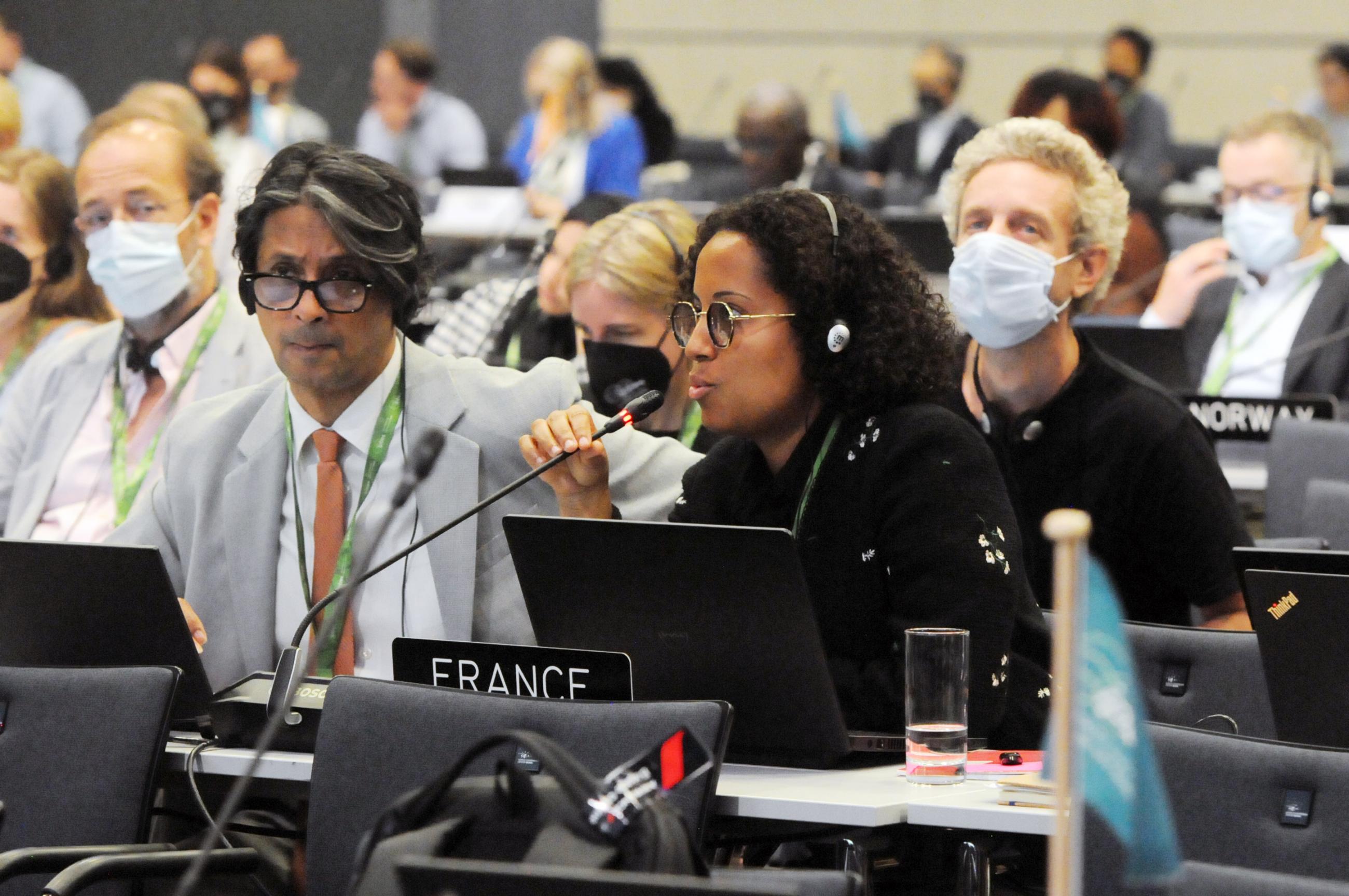
Buying less, eating better, going green? How to best reduce the impact of research
Nonetheless, the ecologist is perfectly lucid and realises that "indirectly, research activities have an impact on biodiversity". So is it possible to reduce the impact of research on living organisms in the same way as for the climate? Philippe Grandcolas agrees it "will never be possible to define a single simple indicator for such a complex subject, but we can always rely on proxies like local and sustainable purchasing, greening and good ecological management of land, and low-impact collective catering." Nature-based solutions also need to be encouraged and these are studied within the SoluBiod PEPR programme co-led by the CNRS and the National Research Institute for Agriculture, Food and Environment (INRAE).
In fact, a fair number of units have already begun their green transformation. A laboratory in Caen has planted a mini-forest on its site and two of the CNRS's eighteen regional offices have been working on the preservation of the plant cover and fauna on their sites for several years now. In the framework of its contract renewals and building renovation work, the Centre Limousin Poitou Charente regional office's campus in Orléans has implemented a preservation policy for the extensive plant cover on its site for several years coupled with work to raise awareness of the species that live there. Marion Blin, the deputy regional representative and the regional office's sustainable development officer, talks us through the most emblematic initiatives – eco-pasturing by around sixty goats and sheeps, late mowing of fields and the installation of around twenty nests for blue tits. Soon the regional office will also be installing bat nesting boxes, constructing a rainwater retention basin for deer, foxes and wild boar to drink from in warm weather, limiting the height of fences to 1.2 metres to allow animals to roam as they wish, leaving the forest to grow freely, the preservation of a local species of wild orchid and so on. The regional office initiated all these actions but these are also closely monitored by the campus staff who are very committed to preserving their working environment and help drive the initiative. The deputy regional officer illustrates their level of commitment by pointing out that "a dozen angry e-mails get sent every time a tree gets chopped down – even for health reasons".

In Toulouse there is a different approach. After the Covid-19 pandemic, the West Occitania regional office began to implement a preservation policy for the wooded area on its land along the Canal du Midi. Carole Mainguy is the regional office's ecological transition officer and looks back at the origins of this land strategy, recalling that "the specifications for green spaces were coming to an end so we drew up new specifications based on IPBES recommendations". The policy in Toulouse involves a number of actions that are similar to those implemented on the Orléans campus but the West Occitania regional office now aims to take this even further and obtain certification as a biodiversity refuge for its campus. All these concerted actions have helped "put joy back into the centre of the campus", recounts a delighted Carole Mainguy.
As well as greening its grounds, the West Occitania regional office is also working on reducing the impact of its collective catering on biodiversity. It will implement a pilot project for the CNRS from 1rst January 2025 involving the introduction of a new catering contract with new social and environmental criteria accounting for up to 20 % of the evaluation of suppliers. Currently the CNRS's guideline on eco-responsible purchasing recommends a minimum of 10 % for this criterion. It is the end for individual plastic bottles and pots of yoghurt and compotes which will now come in tetrapacks and hard containers. More organic products from short circuits will be chosen and unsold products will either be resold to users at the end of the day or donated to charities.
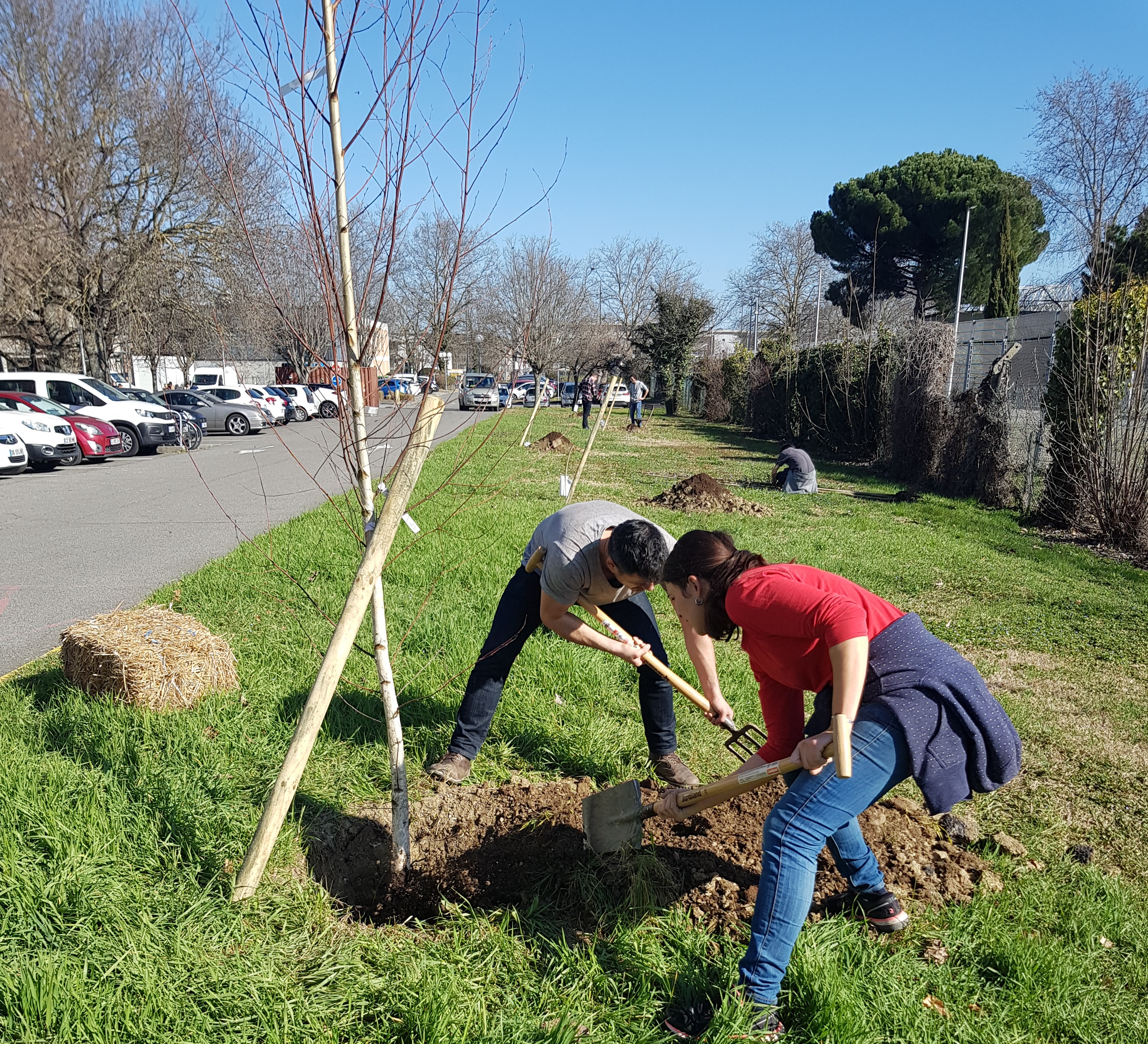
More generally, the approach in Toulouse is in line with the CNRS's new purchasing ''buy less to buy better'' policy aimed at cutting the impact of purchasing which accounted for 74 % of the CNRS's greenhouse gas emissions in 2019. This new policy led to the May 2023 publication of instructions on eco-responsible purchasing which stipulated that all regional office purchasers must include environmental criteria in their formalised contracts including the preservation of biodiversity. This was, in fact, three years in advance of the legal requirement for all public purchasers.
These initiatives are still in the very early stages but all aim towards a common goal – reducing the impact of research on biodiversity. To take this further, like all other French research organisations the CNRS is currently drawing up its sustainable development and social responsibility plan in the framework of French Higher Education and Research's broader Climate-Biodiversity and Ecological Transition Plan. One of the themes will be "The environmental impact of daily operations on sustainable biodiversity management and the preservation of living organisms". As Philippe Grandcolas assured us, this is another way of proving that "the CNRS has a duty to set the right example and possesses all the right skills to take this forward effectively".
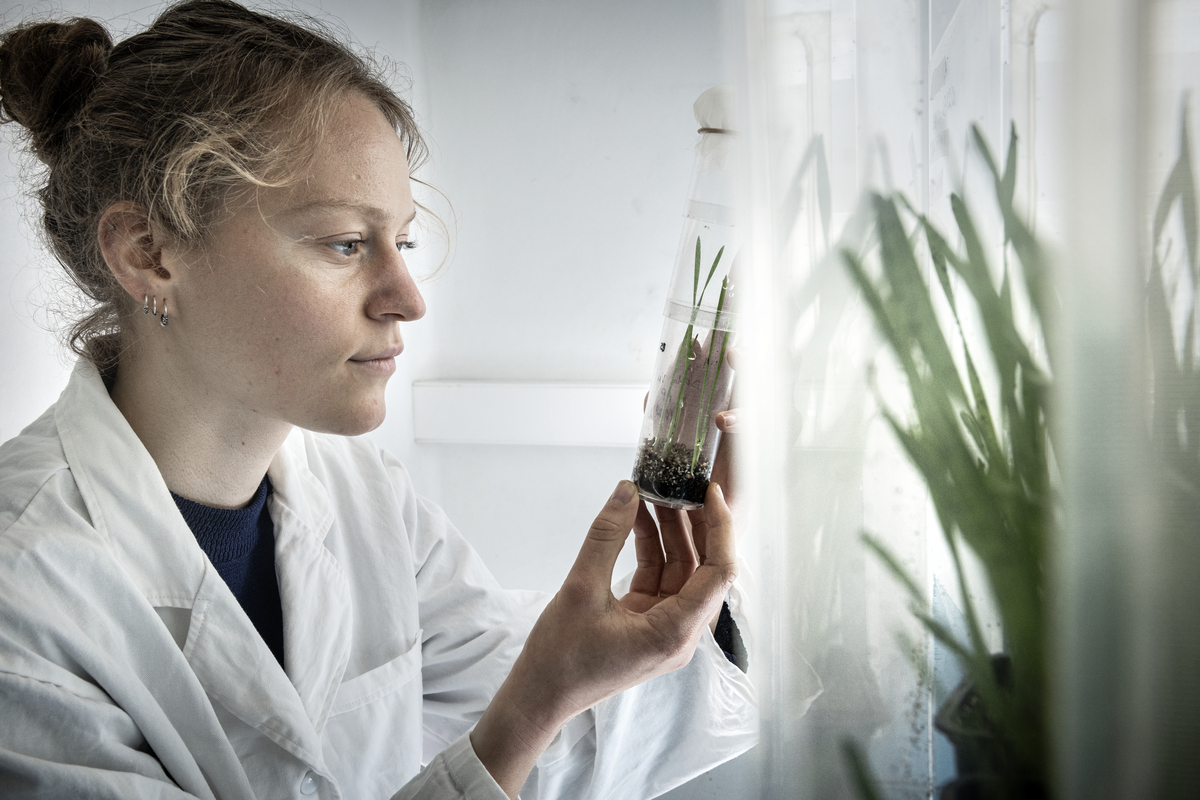
Notes
- The 'Public establishments and companies' Sustainable Development Club' was created in 2006 and now has over 150 members, including the CNRS. It is managed by the French Sustainable Development Commission (Commissariat général au développement durable) and aims to drive collaboration and the sharing of ideas and actions between its members to accelerate the ecological and inclusive transition.
